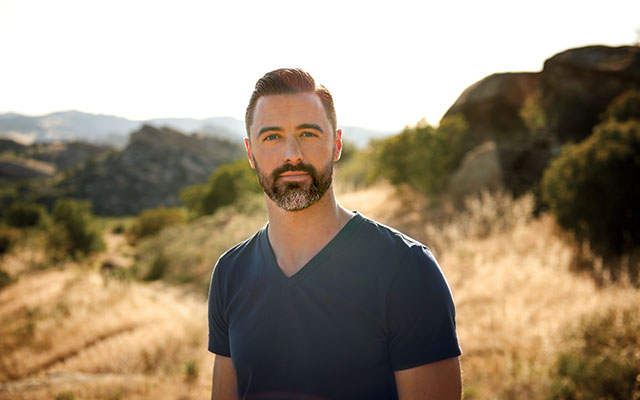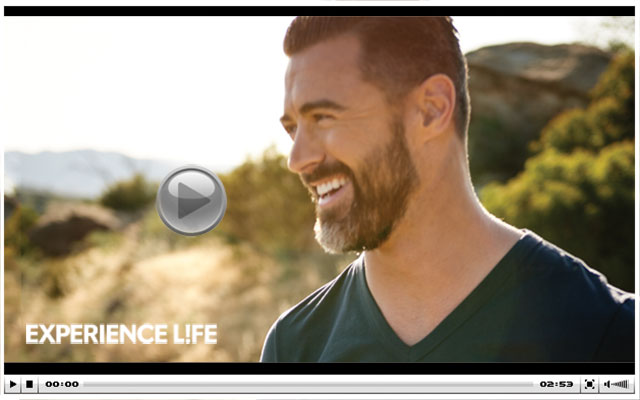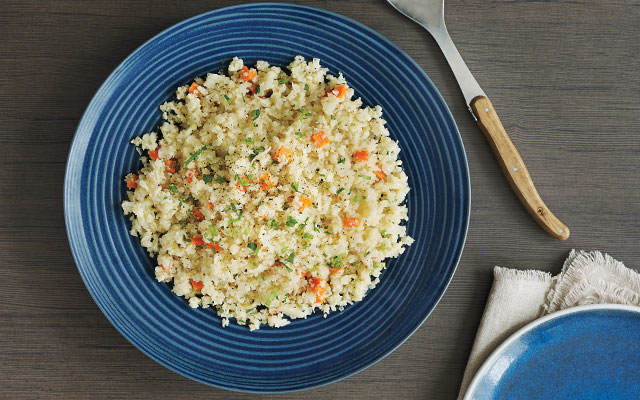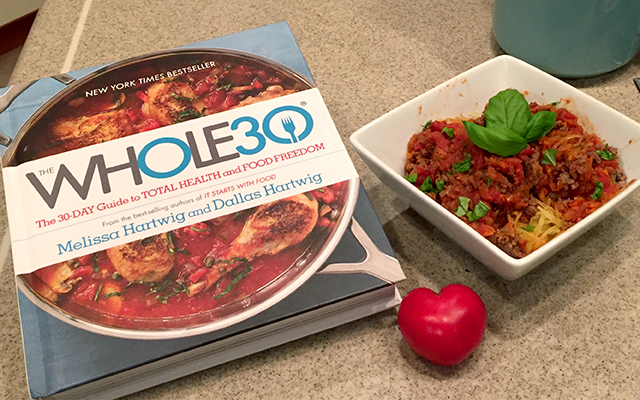One of the first things you notice about Dallas Hartwig: He’s decisive.
This is a guy who is clear about his likes (strong coffee, good food, his custom Ducati motorcycle, and Cormac McCarthy) and his dislikes (inauthenticity, superficiality, junk science, and being told what to do).
He doesn’t mince words and he doesn’t shy away from debate.
Hartwig, 36, is even more unequivocal about his greatest love: his son, Atticus, age 2, whom he describes as “the best thing to happen to mankind since . . . ever” and for whom he says that he “would die a thousand deaths.”
The cofounder of Whole9 (a health-transformation resource with nearly 2 million followers), Hartwig is also the coauthor of two best-selling books, It Starts With Food and The Whole30, both of which present a flexible but strictly wholesome approach to eating — and living — well.
If Hartwig is decisive, it’s due at least in part to the fact that he’s spent a lot of time thinking, researching, exploring, and experimenting for himself — first as an athlete, then as a physical therapist and strength coach, and more recently as a health educator, functional-medicine practitioner, and sought-after speaker.
Interestingly, while he holds firm, well-researched opinions about virtually every aspect of whole-person health and happiness, and while he’s spent the last six years criss-crossing the globe sharing his views via seminars, conferences, and media, Hartwig says he isn’t particularly interested in “fixing” anybody, or telling people what to do.
“I’m a big believer in the idea that we are all individuals with unique circumstances and genetics,” says Hartwig. “I want to provide a framework that empowers people to find their own way, and to change themselves however they see fit. I’m offering a road map but not driving directions or one ‘ideal’ destination.”
We caught up with Hartwig as he was coming off the promotional tour for his most recent book to find out how he got to where he is today, and what he’s hungry to do next.
Experience Life | How did you get into this whole healthy-living thing?
Dallas Hartwig | I was raised on a farm in Canada without running water or electricity. We grew our own food. We got up when it got light and went to bed when the sun went down. I was outside all the time. My parents were vegetarians — Seventh-day Adventists who believed being healthy was a spiritual obligation. So I was raised eating tons of vegetables and had the basics of healthy living and healthy rhythms pretty much built into me. Later, as I learned more, I embraced a more Paleo-inspired approach to eating, but I think that early respect for my body — that taste for nourishing food and healthy-living patterns — never really left me.
EL | What led you to the perspectives and practices you advocate for today?
DH | I’ve always been interested in athletic pursuits, so maintaining a high level of health was important to me. I played volleyball at the national level — hard — and wound up doing some damage to my shoulder. When I got out of grad school and started practicing as a physical therapist, I realized that none of the interventions we therapists were using were working very well for injuries like mine.
At that time, I was still eating a lot of whole grains and legumes and low-fat dairy, all of which was considered conventionally healthy at the time, but then I read a research paper by Loren Cordain in the British Journal of Nutrition. It discussed dietary triggers for rheumatoid arthritis — which my sister had — and I thought, “Hey, if this kind of nutritional approach can work for arthritic joints, maybe it can help with my shoulder, too.”
I dug into the research and tested it out for myself, and got much better results than I’d had with any other approach I’d tried. I also started feeling better overall. So I started looking deeper into the current nutrition and lifestyle science.
It seemed obvious that a lot of the old assumptions about diet were wrong. To the extent that my PT patients, friends, and family were willing to adopt more anti-inflammatory nutrition and lifestyle changes, they saw improvements, too.
I saw an opportunity to make a bigger difference, to help people change their lives in healthier directions, and I realized that’s really what I wanted to dig into.
EL | And that got you into what you’re doing now?
DH | Yeah. In my heart, I really wanted to help people, and we just weren’t doing a very good job of that within our limited scope of practice as PTs. I saw that a more systems-based, lifestyle-medicine approach would be more helpful to far more people.
The Whole9 and Whole30 workshops started out as a sort of side hobby and wound up being a full-time career. More and more people kept showing up and getting these life-changing results from relatively simple shifts in their diet and lifestyle, and it eventually became clear to me that this was going to be a powerful movement.
EL | What do you see as the most common misperceptions in health and fitness? What are you out to change?
DH | A lot of people confuse looking strong and fit with actually being healthy. I’ve seen so many people who work out all the time, who might look like they are in great shape, but they have chronic inflammation, anxiety, aches and pain, sleep problems, and digestive issues. They are depressed and their lab values are a mess.
I also see a lot of people whose behaviors around their athletic and fitness pursuits are inherently unhealthy. They want to look a certain way or achieve an athletic goal to prove something or to win some competition, but they are just ripping themselves apart in the process.
EL | What’s one thing you’d like to see more health seekers do differently?
DH | Rethink their priorities. I often suggest that people prioritize nutrition, sleep, and activity — in that order. And their eyes widen. People tend to assume that exercise is more important than sleep, but in my view, until you are well nourished and well rested, most attempts at intense exercise are going to backfire. If you aren’t recovering and repairing properly, your attempts at building fitness will eventually become very counterproductive.
EL | Now that your book tour is over, what’s next?
DH | First, I’m looking forward to walking more of my own talk in terms of balance, recovery, and fun. Aside from that, I’m excited about moving beyond nutrition and fitness into the other key factors that affect health and a high quality of life.
That was really always the intended focus of Whole9, but the nutrition aspect just blew up. Which makes sense: For most people, the most dramatic healthy transformation really does start with food. But there’s so much more to healthy living than food.
So now I’m developing a podcast and other resources that will address that broader whole-life perspective. Because the reality is, we live in a world that’s inherently at odds with our DNA and our physiology. I want to help people figure out successful strategies for thriving in this challenging modern environment, and for becoming healthy and strong and sane enough that they feel empowered to make a positive difference for themselves and others.




This Post Has 0 Comments